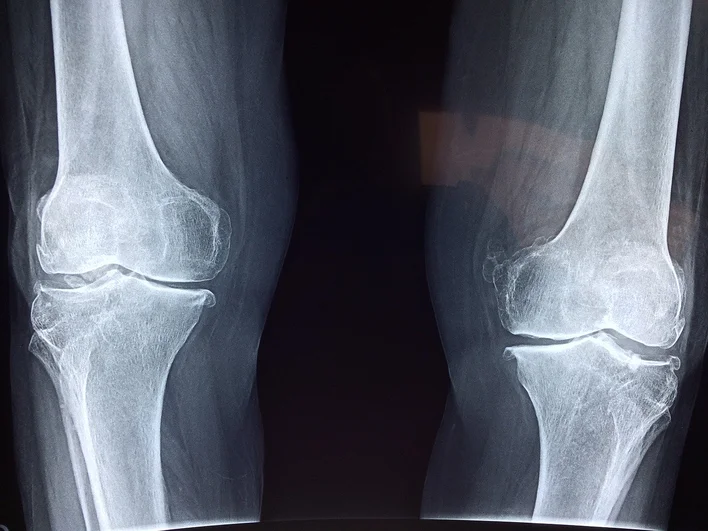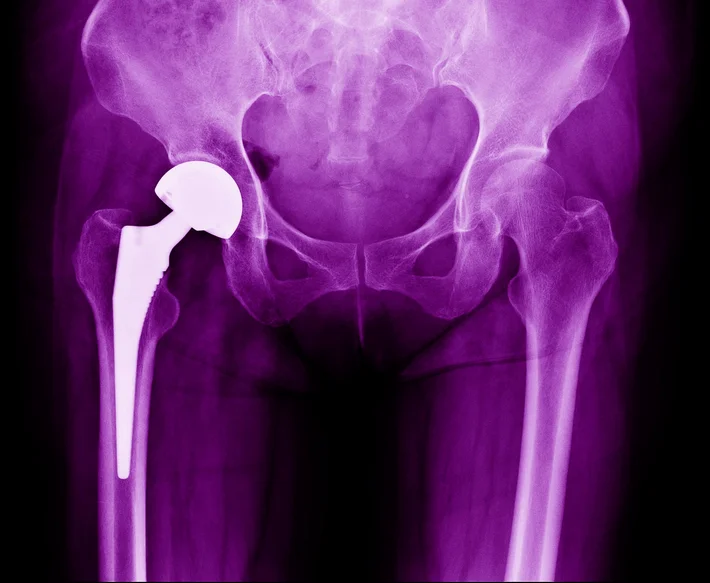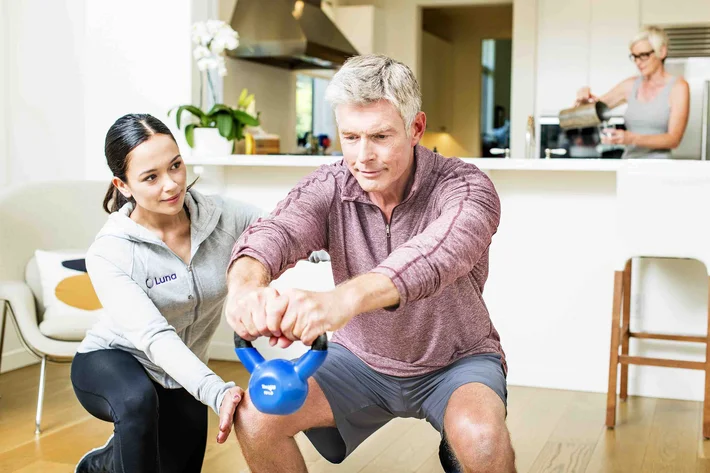
Meet with the best femoroacetabular impingement physical therapists in Timberwood Park, Texas
Timberwood Park, Texas, Luna employs physical therapists that specialize in treating patients with femoroacetabular impingement. Our PTs help patients adjust to life with their hip condition, creating stretching and strengthening routines designed to allow them to participate in the activities they love — with as little pain as possible.
The best part? With Luna, your therapist comes to you — it’s physical therapy, delivered.

What is femoroacetabular impingement?
The hip is a ball-and-socket joint made up of the acetabulum (part of the large pelvic bone), and the femoral head (the upper end of the thigh bone). Typically, cartilage covers the surface of both the ball and the socket, creating a smooth surface that allows the bones to glide across one another easily and with minimal friction.
In patients with femoroacetabular impingement (FAI), bone growths called “spurs” develop around either the acetabulum or femoral head (or both), hindering this smooth gliding motion. Over time, friction in the joint can cause the cartilage to break down, resulting in osteoarthritis.
Source: OrthoInfo

What causes femoroacetabular impingement?
FAI occurs when the femoral head or hip socket are misshapen. Genetics can play a role; some patients are born with a structurally abnormal ball-and-socket joint. In other cases, repetitive activity can lead to FAI in, for example, athletes who play football, soccer, or tennis — all of which sports require recurring movement beyond the legs’ normal range of motion.
Injury or disease can also contribute to FAI. Perthes disease, or a growth plate fracture in the femur represent just a few examples.
The most common causes of femoroacetabular impingement include:
- Genetics
- Repetitive activity that overextends the leg
- Injury
- Disease















